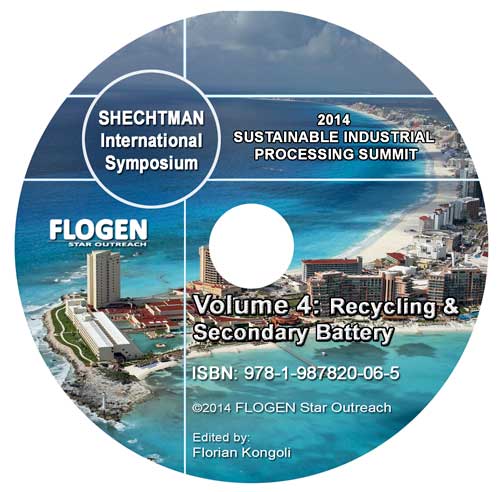2014-Sustainable Industrial Processing Summit
SIPS 2014 Volume 2: Mineral Processing
| Editors: | Kongoli F |
| Publisher: | Flogen Star OUTREACH |
| Publication Year: | 2014 |
| Pages: | 446 pages |
| ISBN: | 978-1-987820-04-1 |
| ISSN: | 2291-1227 (Metals and Materials Processing in a Clean Environment Series) |

CD shopping page
Sustainable Organization of a European research Centre
Dirk Fransaer1;1VITO NV, 2400 Mol, Belgium;
Type of Paper: General Plenary
Id Paper: 367
Topic: 19
Abstract:
Worldwide, innovation and research and development are deemed to be more and more important to transform the present economy and industry and maintain or obtain a competitive edge in the globalized economy. To support innovation and necessary basic and even applied research and development, extensive recourse is made to government support, especially in Europe. As such a situation exists or was created in which someone else, "usually the government", pays "at least in part" for the research. This form of support can take on fancy names as "open innovation".
Although at first this seems to be an attractive working model for R&D, certainly in a butting economy or the start of a new research center, the strategy fails to achieve the breakthroughs needed and wanted in the globalized economy. The case in point is Europe and certainly Belgium, where a large gap exists (sometimes also called the "valley of death") between the actual research and the practical implementations.
The logical question therefore seems: "Is this type of research 'sustainable'?", i.e. how should a research institute be set up to contribute to the economic, industrial and social fabric of its (host) country.
Two types of organizational set-up for research centers across Europe seem to exist: 100 % subsidized by government without any contract research to a typical EARTO (European Association of Research and Technology Organizations)-organization in which de facto a fixed ratio exists between the subsidy of the state or region and the size of the contract research.
The presentation will address the specifics of the VITO-organization, as its main research topics are clean-tech and sustainable development including transition management and this in the particular Belgian and European context. The presentation will also venture into a broader European context, specifically in the clean-tech area.
It is clear that each technological area in which a particular research centers operates (clean-tech, life sciences, ICT) carries with it particulars on the "valley of death" that cannot be reproduced in the other areas.